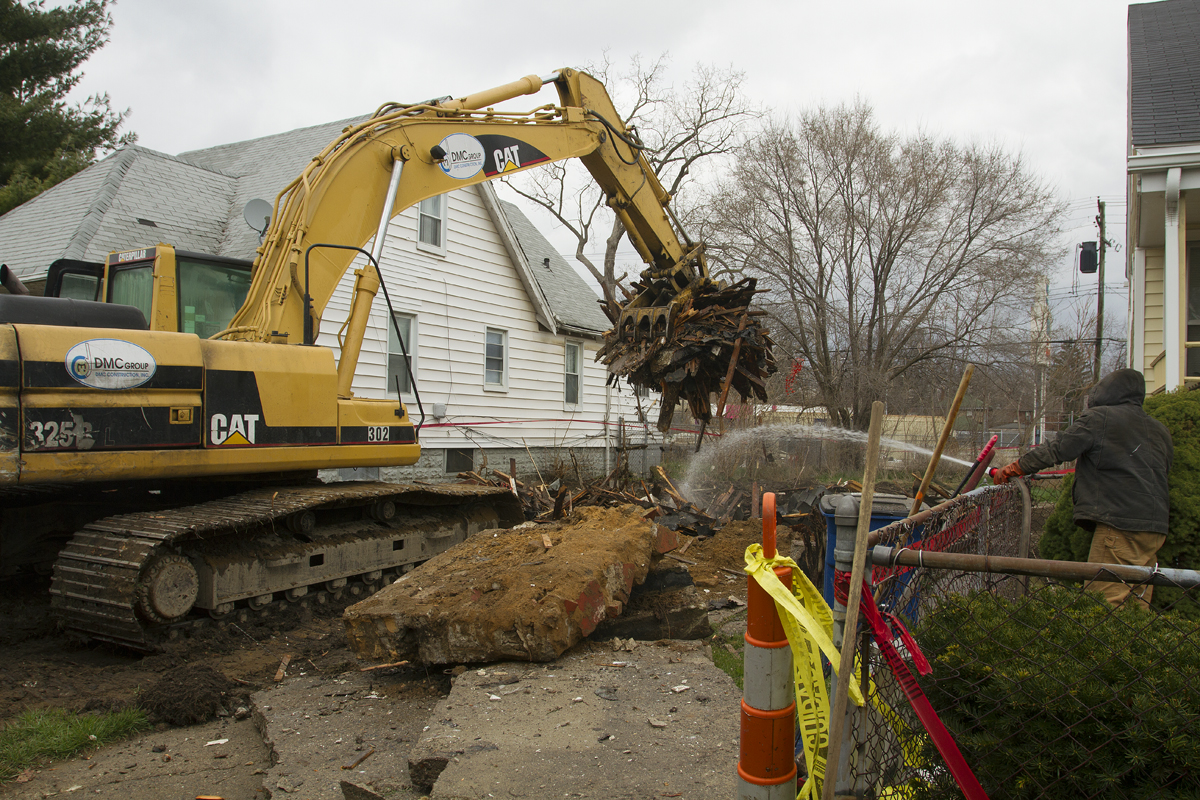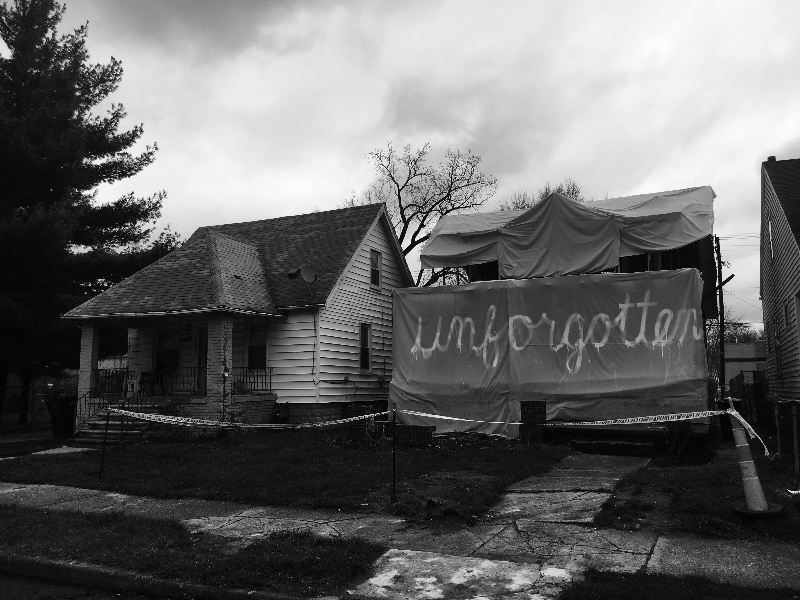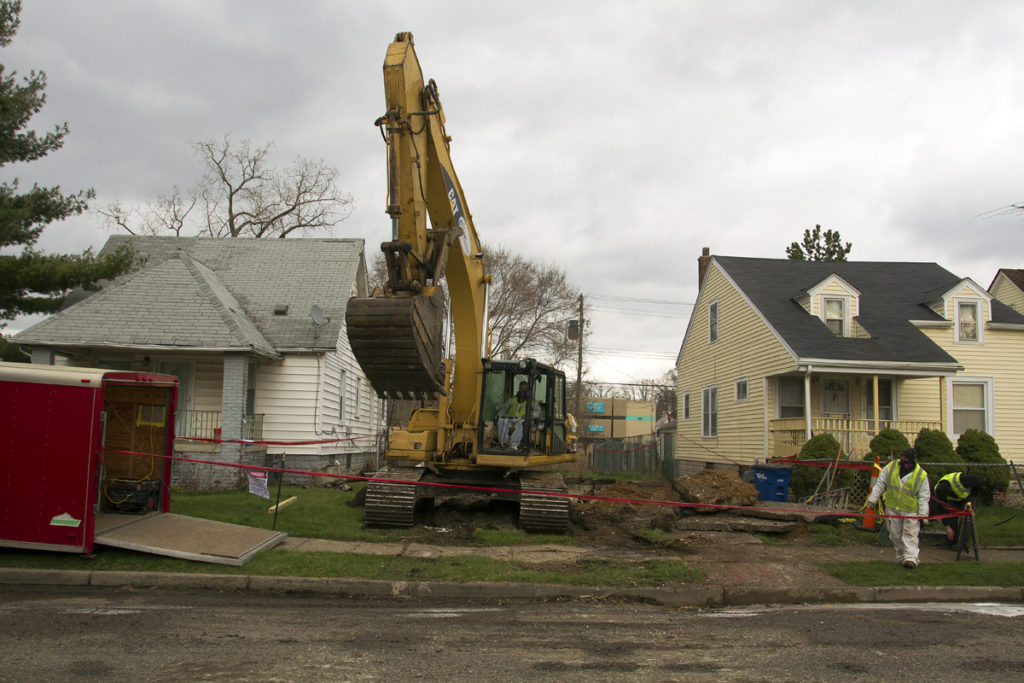
By Steve Neavling
Motor City Muckraker
Ryan Mendoza felt terrible.
What began as a sincere, ambitious art project to move a vacant Detroit house to Europe to represent “memories” of forgotten American homes has devolved into public outcry, largely because of misleading media accounts and an unscrupulous Detroit businessman.
At issue is the exposed, blighted shell left behind when Mendoza, 44, shipped the house’s facade to Rotterdam in the Netherlands in October. The Free Press featured a story on Friday that suggested Mendoza cold-heartedly abandoned the dangerous remains after exploiting the city’s abandonment.
Responding to public outcry, the city hired an emergency crew to demolish what was left of the house Monday on the 20000 block of Stoepel near 8 Mile and Livernois.

Although Menodza has caught the brunt of the criticism, the responsibility to raze the shell belonged to Detroit businessman Harley K. Brown, whom Mendoza paid $13,500 for the demolition job. The deal was that Brown would complete the task a day after the facade was shipped to Europe.
But that never happened.
“I got sick,” Brown told me at the demolition site. “That’s what it is.”
Turns out, Brown is not a licensed contractor and failed to get environmental permits to dismantle the house – a shock to Mendoza and his team.
Mendoza said they chose Brown because they wanted to support a small, Detroit-based business.
Mendoza apologized to residents on the block.
“I promised them I was going to get the house demolished,” Mendoza said. “I chose the wrong person. I would never have done this if I thought he wouldn’t fulfill his obligation.”
Brown was less sympathetic.
“No big deal; it’s not your problem,” Brown told me. “It was a drug house. It’s better off now.”
Brown suggested he was a “friend” of Mayor Mike Duggan’s and was able to pull strings to disassemble the house, a tale that the administration denied.
Now someone is on the hook for the $9,500 emergency demolition, which was bid out by the city because Brown failed to get a permit for five months.
Brown said he “probably” will pay the bill “if it comes down to it.”
The negative attention is the last thing Mendoza wanted. The artist, who was born in Pennsylvania but has lived in Europe for the past 20 years, said the idea was to memorialize a house and the memories it represents. It was never about “ruin porn,” as has been suggested in the media.

“I was going to freeze a moment of America’s history in time,” Mendoza wrote in a piece for the Guardian. “I wouldn’t let the government bulldoze all the dilapidated houses with all their memories without one being preserved as testimony, a stubborn reminder of all the others.”
Mendoza teamed up with the home’s owner, Gregory Johnson, and the past owner to preserve many of the memories left behind – photographs, letters, old televisions. He added photos from his own family.
“The idea was to remember the story and history of the house,” he told me. “It was never about ruin porn.”
Mendoza also planned to donate money from the project to improve Detroit in the area of 8 Mile.
Mendoza’s wife, Fabia Mendoza, created a short documentary, “Coming Home,” about the project. It premiers at the 2016 Detroit Free Press film festival at 2:30 p.m. April 2 at the Detroit Institute of Arts.
The house will soon be on permanent exhibit in Belgium.
Steve Neavling
Steve Neavling lives and works in Detroit as an investigative journalist. His stories have uncovered corruption, led to arrests and reforms and prompted FBI investigations.


6 Responses to "Remains of Detroit ‘art’ house is demolished after misleading media reports"